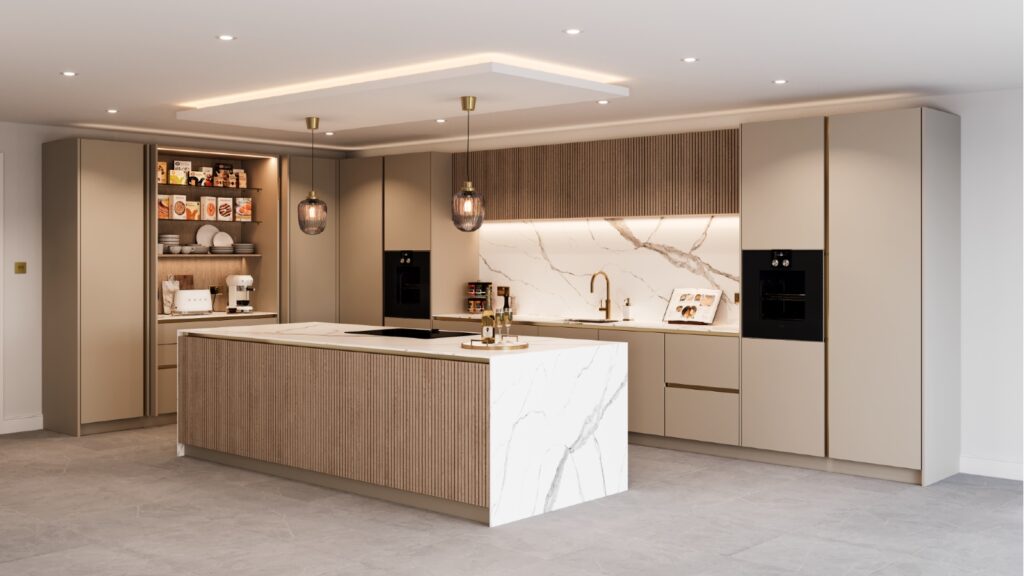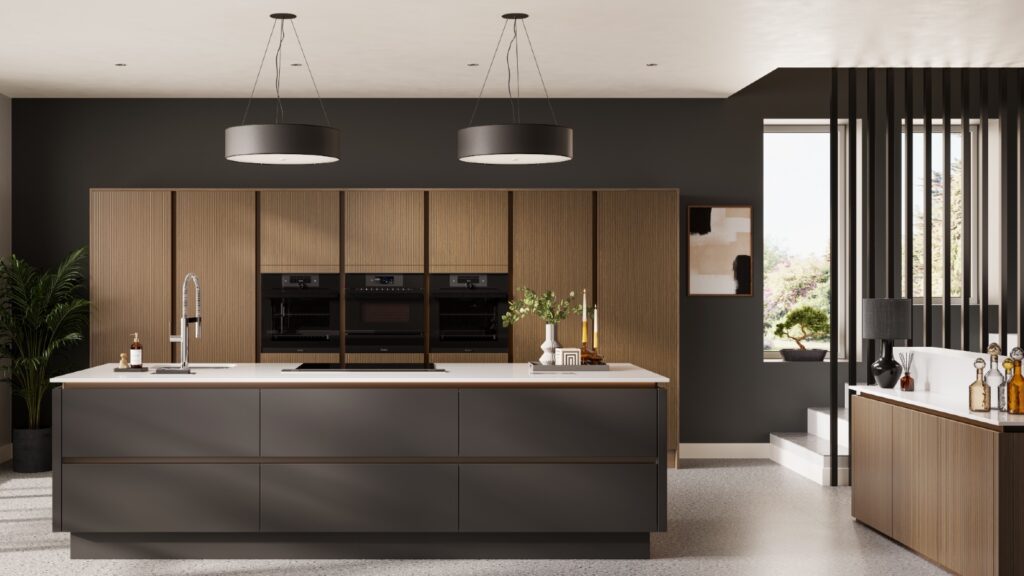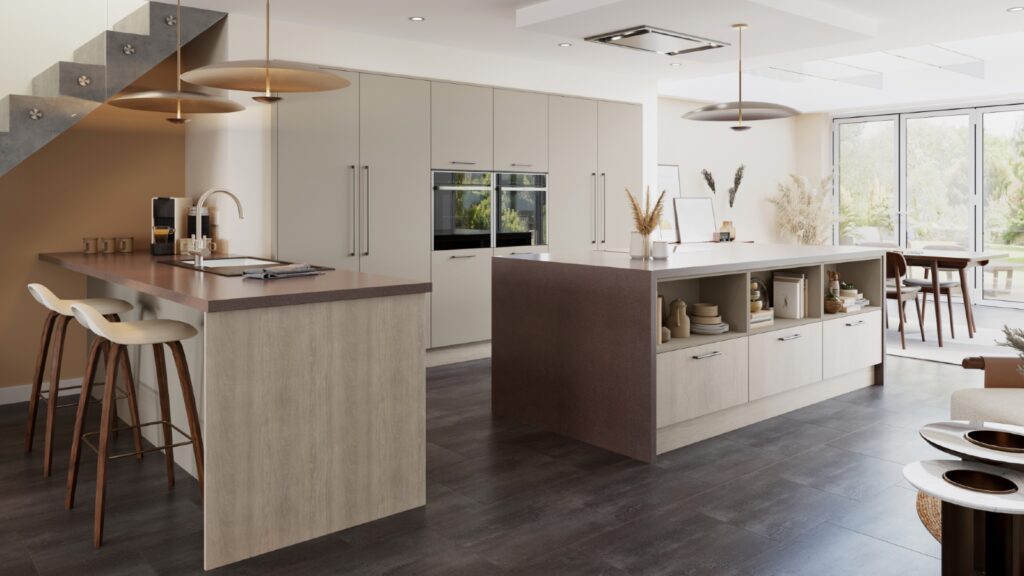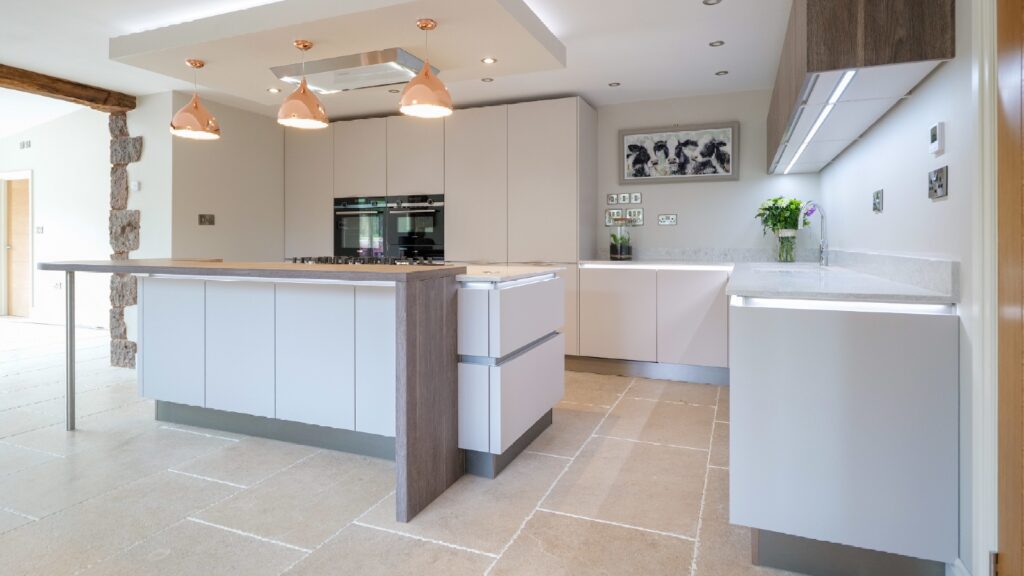Using subtle hues and layering texture and materials, neutral kitchens can make an impact by creating serene home design

British-made, Kesseler luxury kitchens span contemporary handleless and handled designs, as well as classic, Shaker, in-frame and painted models, all with a lifetime guarantee
While bold blues, jewel green hues and dark, dramatic kitchens have been a recent focus of interior design, at the same time has been a counter-trend for natural, organic environments.
With kitchens an integral part of the overall living space, consumers are increasingly seeking environments which are inviting, living spaces.
Sponsored Video
Catgory manager at Uform Sara Cotter looks to the practicality of neutral kitchens, cementing their popularity, as she comments: “Known for their potential to boost natural light and create an illusion of space, neutral and natural colour schemes are fantastic for providing homeowners with a more relaxing indoor space.”
Offering a sense of grounding, the neutral kitchens offer soft colours, woods and stones to bring a serene and sophisticated sense of order.
Marketing manager at TKC Neil Taggart adds: “Neutrals evoke a sense of calm and feeling grounded, where spaces can feel orderly but comfortable and effortlessly stylish when a design is tied together correctly.”
Contemporary interiors
In actual fact, the simplicity of neutral environments has long been established in the home, along with contemporary styling.
But they have recently been reimagined with the pared back Scandi lifestyle trend offering a light aesthetic, through to layered and textured Japandi influences.
Quiet, neutral environments are also “timeless”, as the cost-of-living crisis brought with it a newfound realisation of the value of longer-term solutions to home design.
Site manager of Nolte Kitchens UK in Wilmslow and Southport Matt Kelly adds: “I have many customers who opt towards natural tones as they want to make sure their kitchen will stand the test of time and also appeal to the mass market if they decide to sell the property.”
But don’t confuse contemporary neutral interiors with being uninspiring.
The trend brings with it a raft of easy living colours.
Design manager at Moores Neil McDonald points out: “Neutral/Natural definitely doesn’t mean boring – just look at how far the colour palette extends!
“Neutral isn’t automatically white, the term broadens into shades of beige, taupe, grey and even soft greens and blues.”
And design manager at Symphony UK Josie Medved agrees, adding: “Neutral doesn’t mean just one colour, two or three light colours can be teamed together, such as warm white, off white, pebble, pale pink, pale grey and light sage.”
Texture and warmth
These colours can be combined with materials such as wood and stone-effects, for added warmth, depth and character.

Symphony Linear Trend furniture comes in matt and gloss finishes, with integrated trim in a choice of finishes.
While wood has always been a staple in the kitchen, the trend for neutral kitchens has supported its growth.
Omega has recently expanded its palette of vertical woodgrain ranges in light or dark tones, which can be used as accents.
Head of marketing at Kesseler Nic Shacklock states: “The popularity of neutral and natural kitchens is definitely driving the resurgence of wood and wood-effect finishes.
“We’re seeing wood being used both alone and in combination with colour to create stunning, versatile designs…Natural wood slate panelling is becoming popular for features walls in kitchen, dining and living spaces, adding a wonderful texture and detail while retaining the natural colour tones.”
Sleek storage
Of course, the neutral aesthetic tends to lean towards simplicity, with refined slim-framed Shakers, steamlined in-frame styles and of course slab styles.

Designed for modern lifestyles, Crown Imperial Uno is available as handleless, tip-on handless or with a choice of handles and comes in a neutral palette of colours, woods and linen
Head of UK operations at Rotpunkt UK Matt Phillips adds: “Sleek kitchen furniture is much less predictable today thanks to quality raw materials that contrast or balance an overall scheme with textured stone, wood finishes and vertical groove furniture topping the charts.”
To maintain the streamlined and minimalist appearance, concealed storage is key.
However, that doesn’t mean designers shouldn’t consider focus storage, as James Bishton, retail sales director of Omega, points out: “The tranquillity of a neutral kitchen by its nature can’t be a cluttered busy space.
“This is not to say open shelving doesn’t work, but it works best as a statement decorative piece with the practical elements in a kitchen concealed away. Storage units that allow for drink cabinets, air fryers, coffee machines and toaster to be concealed work particularly well in contemporary, neutral kitchen spaces.”
Suiting all budgets
Interestingly, the premium look can be achieved at all levels of the market – and so retailers serving all sectors of the market are able to capitalise on the trend for neutral kitchens.

Combination of Nolte soft matte-effect Feel range in Sahara and tactile wood Manhattan in Oak Graphite Silver
Sara Cotter of Uform states: “This look is not limited to more premium ranges. Woodgrain foil effect ranges are on the rise and offer an authentic timber look at a more affordable price point.
“This, coupled with their durable properties, and often made to order options can enable designers to create aspirational living spaces for homeowners on a budget without necessarily comprising on the overall aesthetics of the space.”
Manufacturers have also created ranges which span price groups, allowing kitchen retailers to mix and match to meet the budget criteria of their customers.
James Bishton adds: “With the uniformity of a collection of colours across a wide range of door styles and price points, the consumer can pick what they want and flex the furniture price to suit their budget and meeting their project expectation.”
So why not take a look at bridging the gap between organic, neutral and contemporary design, to create kitchens for a holisitic home.



